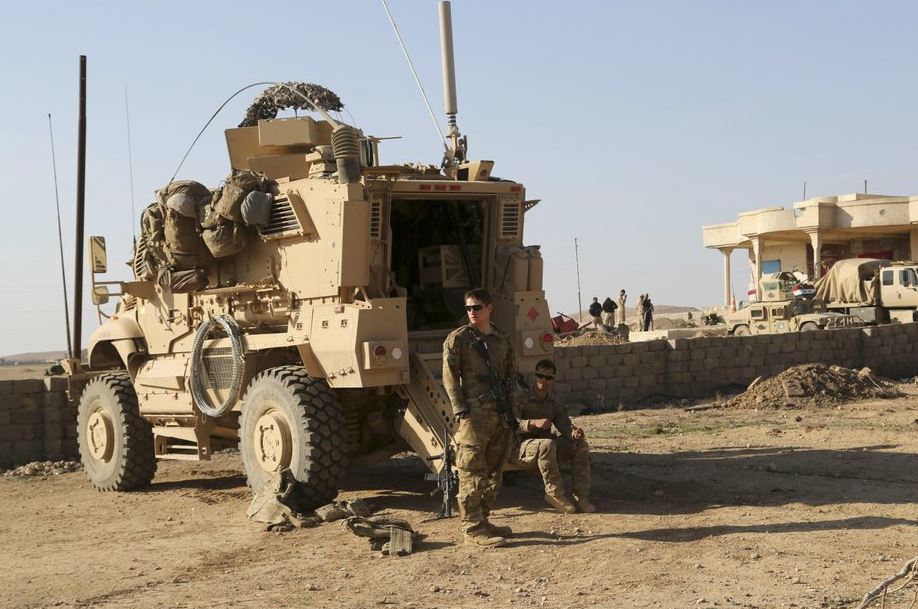
US Army soldiers stand outside their armored vehicle on a joint base with the Iraqi army, south of Mosul, Iraq in February 2017, (File photo: AP)
The Iraqi government has told its military not to seek assistance from the US-led coalition in operations against the Islamic State group, two senior Iraqi military officials said, amid a crisis of mistrust between Washington and Baghdad after an American strike killed a top Iranian general and an Iraqi militia commander.
The step shows that while the Iraqí leadership’s demands for an immediate removal of American forces have cooled, they are serious about rethinking the strategic relationship, and this is directly affecting military cooperation.
Officially, Iraqis have been unclear on the status of joint operations. The Iraqi military announced Jan. 30 that they had resumed after a three-week halt, but that statement was later removed and a military spokesperson rescinded the claim in remarks to state television. It was not followed up with a clarification.
The halt had been called amid soaring tensions following the Jan. 3 US drone strike ordered by President Donald Trump that killed Iranian Gen. Qassem Soleimani and senior Iraqi militia leader Abu Mahdi al-Muhandis in Baghdad.
On at least two occasions in January, US officials said they expected the pause would be lifted imminently. But in practice, Iraqis are seeking to minimize cooperation with the anti-IS coalition, based on government orders, two Iraqi military officials and one militia official said this week.
“After the killing of Soleimani, the Iraqi government decided to inform us formally not to cooperate and not to seek assistance from the US-led international coalition in any operation,” a senior military intelligence official told The Associated Press.
“Until now, we have not asked the Americans to provide assistance, we rely on our capabilities to pursue IS elements. The presence of the Americans in the joint operations is only formal,” the official said.
The three officials spoke on condition of anonymity because they were not authorized to talk to reporters.
The coalition paused its mission to fight IS in Iraq on Jan. 5 after the strike. That same day, Shiite lawmakers, irate over what they called a flagrant violation of sovereignty, passed a nonbinding resolution requesting the government cancel legal agreements that provide the basis for the US troop presence in Iraq.
Outgoing Prime Minister Adel Abdul-Mahdi has stated publicly that US troops must go, but he has stepped back from unilaterally canceling existing agreements, saying the matter was up to the next prime minister to decide. Prime Minister-designate Mohammed Allawi has not made his policy known toward the troop presence.


